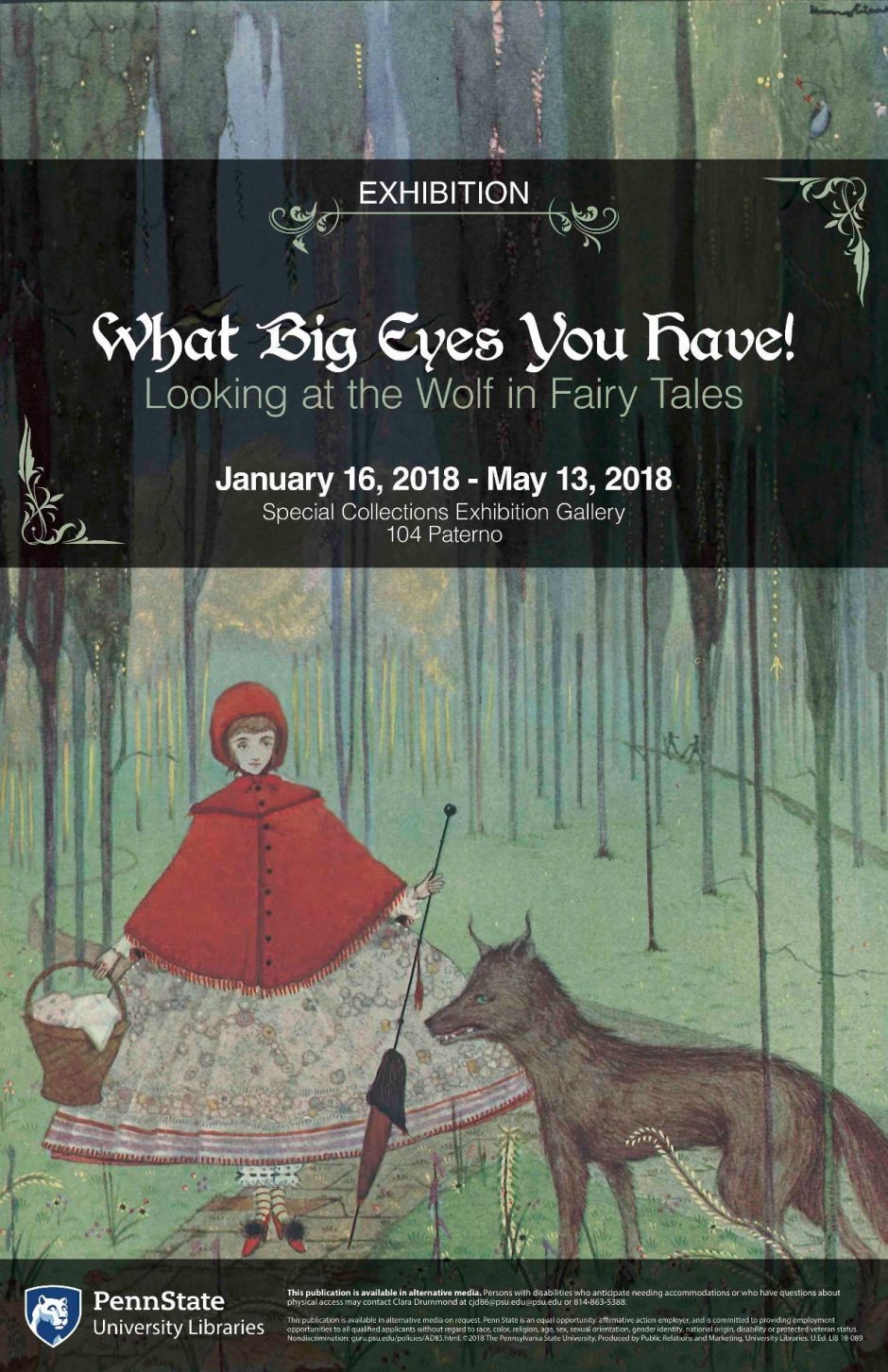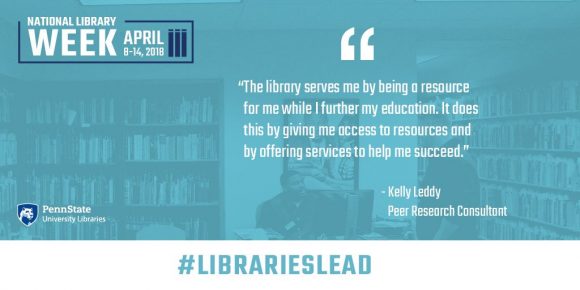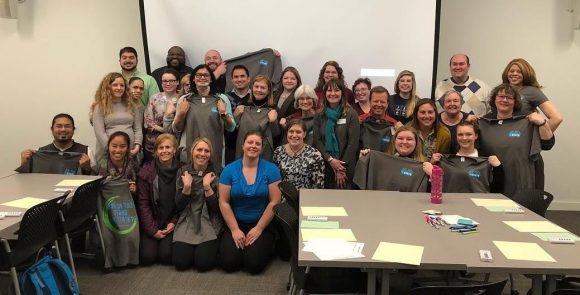Spring 2018
Academic calendar information for all campuses is available online.

Jan. 16–Aug. 26, “What Big Eyes You Have! Looking at the Wolf in Fairy Tales”exhibition, Eberly Family Special Collections Library Exhibition Room, 104 Paterno Library.

Feb. 18-Aug. 13, “Depth of Field” exhibit, Diversity Studies Room, 203 Pattee Library, seeks to highlight the intersections of war in the Middle East with the history of war photograph

Mar. 27-July 31, “1968: Student Activism at Penn State and Beyond” exhibit, Highlighting archival documents, photographs, and books from The Eberly Family Special Collections, this exhibit ties into a College of the Liberal Arts project titled Moments of Change: Remembering ‘68. Learn more about this project at 1968.psu.edu. Barbara Hackman Atrium, Pattee Library.
Wednesday, Apr. 11: Software in the Humanities and Social Sciences Workshop – OpenRefine, a free and open-source resource for cleaning, regularizing, and organizing complex data, with Jose Guerrero. Bring a bag lunch; noon-1 p.m. 403 Paterno Library and via Zoom at https://psu.zoom.us/j/914950827.
Tuesday, Apr. 16: East to West, U.S.-China College Art Summit. Summit to bring scholars, artists, designers, business professionals, and policy-makers from China and from the U.S. together to share best practices in education program design, research, community development, and social impact. Panel discussions, 8:30 a.m. – 5:45 p.m. various locations in Pattee and Paterno Libraries.
Sunday, Apr. 22: International Write-In. Two sessions, 3:30-7:30 p.m. and 8 p.m.-midnight. Mann Assembly Room, 103 Paterno Library. Interested writers can sign up today at: http://tinyurl.com/psuwritein
Monday, Apr. 23: Working with International Students Workshop: Resources and Inclusive Strategies, 1-4 p.m., 221 Chambers Building, Krause Learning Space.
Please submit event information — and all Library News submissions — to Public Relations and Marketing via the Library News submission form. *Please note: The content submissions process may be changing soon; please stay tuned for updates.*













